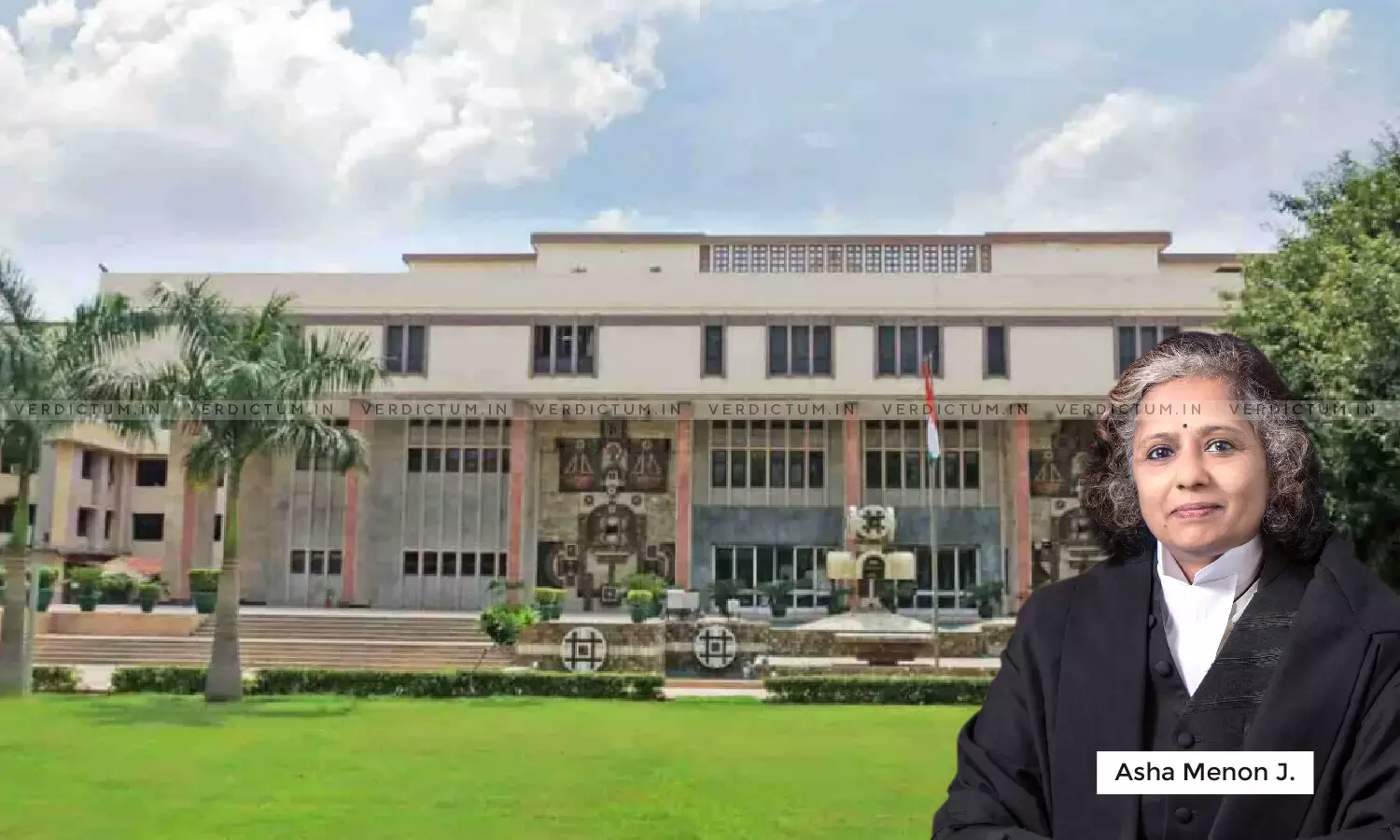Delhi HC Quashes FIR U/s. 306 IPC Owing To Settlement Between Parties, Distinguishes Last Week's SC Judgment

The Delhi High Court in abetment of suicide case (Section 306 IPC) has quashed an FIR owing to a settlement between the parties.
Interestingly, the decision pronounced by Justice Asha Menon distinquishes the verdict of the Supreme Court in the case of Daxaben v. The State of Gujarat pronounced on July 29, 2022 (read report).
The High Court has while quashing the FIR registered under Section 306 IPC observed –
"This Court is in agreement with the learned counsel inasmuch as the Settlement has been worked out with the intervention of the Family Court. The respondent No.2, who is at an advanced stage of life as well as of frail health, is also assured that the children are going to the petitioner, their father, at a crucial age of 14 and 13 respectively, when parental guidance would be of immense importance. No doubt, healing will take time."
While the Apex Court in Daxaben's case (supra) while refusing to quash the FIR registered under Section 306 IPC had held that heinous crimes which have an impact on society cannot be quashed on the basis of a compromise between the offender and complainant and/or the victim.
In that case, the two-judge Bench of Justice Indira Banerjee and Justice V. Ramasubramanian had also held that orders quashing FIRs and/or complaints relating to grave and serious offences only on basis of an agreement with the complainant, would set a dangerous precedent where complaints would be lodged for oblique reasons with a view to extract money from the accused.
While the High Court opined that the facts of the case are vastly different from that in Daxaben's case (supra) and that being the position, the High Court has an inherent power under Section 482 CrPC to quash the FIR.
A petition was filed before the High Court under Section 482 CrPC seeking the quashing of FIR under Section 306 IPC.
The Petitioner informed the Court a settlement was arrived at before the Family Court where the Family Court had interacted with the children who expressed their desire to be with their father-Petitioner. Respondent no. 2 also affirmed that he too believes that it is in the interest of the children that they are with their father. He hopes that the relations between himself and the petitioner may improve over a period of time, but believes that this is the best way out.
APP for the State Ritesh Kumar Bahri relied on Daxaben's case (supra) to contend that even if a settlement has taken place, the Court lacked the jurisdiction to quash an FIR registered under Section 306 of IPC. Reliance was also placed on a judgment of the Punjab and Haryana High Court in Neelam Devi and Anr. V. State of Punjab and Anr., rendered on 1st April, 2022, and the decision of the Supreme Court in State of Madhya Pradesh Vs. Laxmi Narayan & Ors. (2019) 5 SCC 688.
Senior Counsel Pramod Kr. Dubey for respondents No.2 to 6, argued that the Supreme Court has not barred the quashing of cases under Section 306 IPC, and refers to para No.37 of Daxaben (supra) to contend that the High Court has inherent powers to quash the criminal proceedings where the facts and circumstances of the case required it to do so.
Counsel for the Petitioner Tanveer Ahmed Mir also submitted that the facts in Daxaben (supra) are different inasmuch as the wife of the deceased was kept out of the Settlement and the interest of the one, who was the victim of the crime, was ignored.
Thus, the High Court held, "For the present, the fact situation being vastly different from that in Daxaben (supra) and there being no bar on the exercise of the inherent powers by the court in appropriate cases, this Court is of the considered view that the petition deserves to be allowed."
Accordingly, the petition was allowed and the FIR under Section 306 IPC was quashed.
Cause Title - Vipin Suneja v. State of NCT Delhi & Ors.
Click here to read/download the Order

